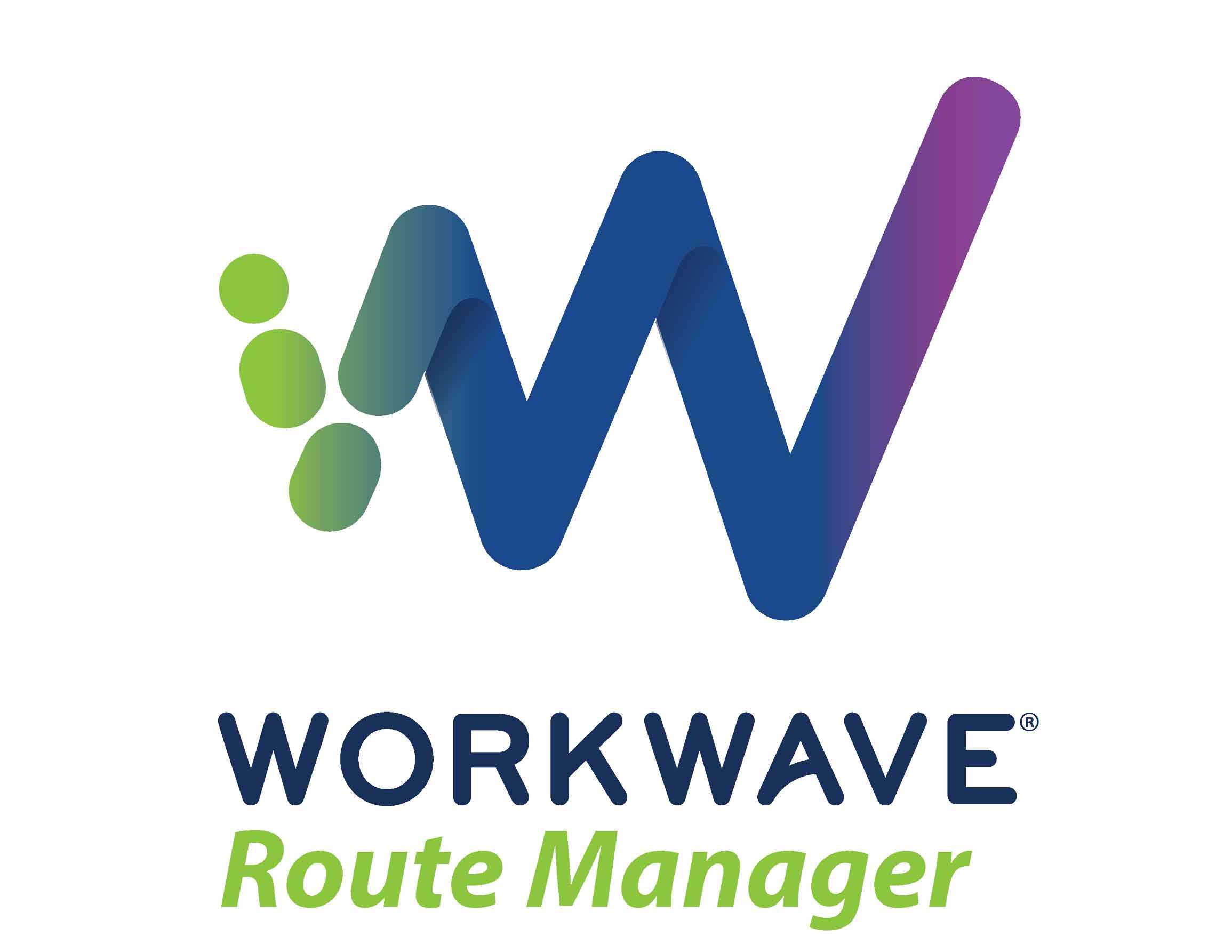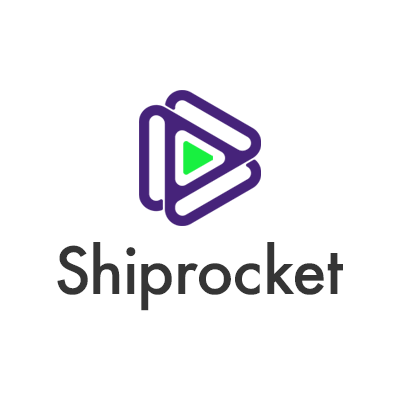Yes, most modern last mile delivery software is designed to be available from a variety of devices and platforms. This implies that you may access the program and conduct your delivery chores from any desktop computer, laptop, or mobile device. Furthermore, many last mile delivery software solutions are available as web-based applications, making them compatible with many operating systems such as Windows, iOS, and Android.
List of 20 Best Last Mile Delivery Software
Deliverider is an innovative software platform that seamlessly integrates third-party seller inventories with your own e-commerce site, simplifying the delivery process. By optimizing middle-mile logistics and reducing the need for extensive inventor...Read More Deliverider
DoDo LastMile is an innovative logistics software designed to streamline last-mile deliveries in urban areas. Utilizing data, our platform offers efficient and sustainable solutions, including real-time tracking, customizable delivery options, and co...Read More DoDo LastMile
OptimoRoute is a cloud-based route planning solution for businesses. With its innovative features and strategies, this software simplifies resource allocation for service technicians and delivery drivers, boosting efficiency and cost savings. Say goo...Read More OptimoRoute
WorkWave Route Manager solution for optimizing your field service operations. Trusted by over 375,000 professionals, this comprehensive tool streamlines routing, scheduling, and reporting to enhance efficiency and ensure customer satisfaction. With W...Read More WorkWave Route Manager
Shipsy is a logistics software powered by AI. Our platform is designed to streamline supply chain processes, ensuring increased efficiency, lower costs, and improved customer satisfaction for businesses globally. With advanced real-time analytics and...Read More Shipsy
Routific is a route planning software designed for efficient and effective transportation and logistics operations. It offers a variety of features, including driver management, API integration, customer and order import, analytics and reporting, and...Read More Routific
Locus Dispatcher - an advanced logistics software that transforms delivery processes. Powered by AI, it efficiently plans routes, boosts productivity, and ensures on-time deliveries. Trusted by top companies, it provides cost-effective solutions and...Read More Locus Dispatcher
Fastlane is a delivery management software that simplifies your delivery operations. With features like enhanced route planning, proof of delivery, and detailed delivery reports, streamline your processes and deliver faster. Our user-friendly dispatc...Read More Fastlane
Mojro - Executewyse solution for streamlining your supply chain! With advanced features like smart assignment, automated routing, and real-time tracking, this software significantly reduces operating costs. With a driver app, tasks are seamlessly ass...Read More Mojro - Executewyse
Shipox is a Delivery Management System for businesses in all industries. Our cutting-edge features such as route optimization, heat maps, and driver application, simplify and streamline the delivery process for smoother operations. Improve your deliv...Read More Shipox
FarEye Fleet is the top fleet management system that provides up-to-date data, minimizes expenses and turnaround time, and opens up potential revenue streams. Enhance your organizations productivity and effectiveness while maintaining adaptability. S...Read More FarEye Fleet
ShipBob is a popular ecommerce fulfillment software that streamlines the entire process of order fulfillment from your online store to your customers doorsteps. With a broad client base and a global reach, it promises fast 2-day shipping and seamless...Read More ShipBob
ShipRocket is a software solution that simplifies your shipping, fulfillment, and inventory management tasks. It enables you to save on costs and effortlessly connect with various shipping carriers. By leveraging ShipRocket, you can seamlessly ship w...Read More ShipRocket
Deliforce solution for all your courier management needs. With real-time tracking, optimized routes and efficient navigation, Deliforce provides you with the tools to stay ahead of the competition. Experience seamless deliveries and prompt notificati...Read More Deliforce
Scurri is a top-notch delivery management software that enhances your carrier coordination, minimizes costs, and enhances customer satisfaction. With its efficient operations and insightful data, Scurri helps your business achieve on-time and success...Read More Scurri
Bringg is a highly effective and essential tool specifically designed for the delivery logistics industry. Companies like Coca-Cola and Walmart rely on Bringg to simplify processes such as on-demand deliveries, overseeing multiple fleets, providing d...Read More Bringg
Tiramizoo - a software platform designed to transform last-mile delivery logistics. Streamlining processes, reducing administrative tasks, and enhancing customer satisfaction, this revolutionary solution is a must-have for companies seeking efficient...Read More Tiramizoo
Project44 is a logistics software designed to simplify the management of all types of shipments and transportation modes. With access to a global network of over 175,000 carriers, it offers efficient handling of shipments through options such as rail...Read More project44
OnTime 360 is a delivery management solution, providing top-notch features at the most competitive price. Simplify your processes and boost productivity with our easy-to-use platform. Our dedicated support team is always available without any extra c...Read More OnTime 360
Learn More About Last Mile Delivery Software
- What Is Last Mile Delivery Software?
- What Are The Recent Trends In Last Mile Delivery Software?
- Benefits Of Using Last Mile Delivery Software
- Important Factors To Consider While Purchasing Last Mile Delivery Software?
- What Are The Key Features To Look For In Last Mile Delivery Software?
- Why Do Businesses Need Last Mile Delivery Software?
- How Much Time Is Required To Implement Last Mile Delivery Software?
- What Is The Level Of Customization Available in Last Mile Delivery Software?
- Which Industries Can Benefit The Most From Last Mile Delivery Software?
- Conclusion
What Is Last Mile Delivery Software?
Last Mile Delivery Software is a platform that enables businesses to streamline and optimize their last-mile delivery procedures. It is an essential software solution for businesses that provide delivery services since it allows them to properly manage their delivery operations, track goods, and improve overall delivery performance. This software often includes capabilities like route planning, real-time tracking of drivers and packages, delivery scheduling, proof of delivery, and automatic alerts to keep consumers up to date on their delivery status.
It also enables organizations to collect client feedback and analytics, allowing them to enhance their delivery operations through data-driven decisions. One of the primary benefits of Last Mile Delivery Software is that it connects with a variety of systems, including order management, warehouse management, and customer relationship management, making the delivery process more efficient and seamless.
It may also be accessed via mobile devices, making it easy for truckers and field workers to use while on the road. Another important feature of Last Mile Delivery Software is its capacity to optimize routes, hence reducing delivery time and costs. This is accomplished by evaluating data like as traffic conditions, product weight, and delivery locations to find the most efficient routes for vehicles to take. Furthermore, this program has capabilities that enhance package safety and security, such as temperature control monitoring, electronic signature capture, and geofencing, which prevent theft or mishandling during delivery.
What Are The Recent Trends In Last Mile Delivery Software?
Last mile delivery software has become an essential tool for organizations seeking to optimize delivery operations and improve customer experience. With the emergence of e-commerce and the growing demand for rapid and dependable delivery services, the last mile delivery software market has expanded significantly in recent years.
We'll look at the key developments in last mile delivery software that are driving the market and keeping firms ahead of the competition.
1. Integration Of IoT And AI: The convergence of the Internet of Things (IoT) and Artificial Intelligence (AI) has transformed the last mile delivery process. IoT sensors and devices track delivery vehicles in real time, allowing businesses to monitor the position and performance of their entire fleet. AI-powered algorithms evaluate data from these sensors to optimize delivery routes, reduce fuel usage, and shorten delivery times.
2. Same-Day And On-Demand Delivery Choices: Same-day and on-demand delivery solutions have grown in popularity as there is a greater desire for convenience and speed. Last mile delivery software with real-time tracking, scheduling, and route optimization tools enables businesses to exceed these expectations and create a flawless delivery experience.
3. Contactless Delivery: In the wake of the COVID-19 outbreak, contactless delivery has become a primary priority for both businesses and customers. Last mile delivery software has responded to this trend by offering digital signatures, delivery confirmations via SMS or email, and photo evidence of delivery.
4. Shift To Cloud-Based Solutions: Cloud-based last mile delivery software solutions have gained popularity in recent years because to their flexibility, scalability, and cost-effectiveness. This trend is projected to continue as more organizations embrace remote labor and strive for digitalization.
5. Applying Data Analytics And Predictive Modeling: Data analytics and predictive modeling have emerged as game changers for last-mile deliveries. Businesses can forecast future demand, optimize delivery routes, and solve potential concerns ahead of time by examining past data.
6. Delivery Collaborations And Crowdsourced Delivery: Businesses are collaborating with third-party logistics companies and utilizing crowdsourcing delivery models to broaden their reach and cut delivery lead times. Businesses can handle these collaborations more effectively by using last mile delivery software that supports several carriers and allows for real-time contact with these partners.
Benefits Of Using Last Mile Delivery Software
Last mile delivery software is a technology solution that simplifies the process of transporting items from a distribution hub to their final destination. It is primarily intended to optimize the final leg of the supply chain, which is frequently the most complex and time-consuming. As a buyer, investing in last mile delivery software can provide various advantages to your firm.
Here are some convincing arguments for implementing this software into your operations:
1. Increased Efficiency And Productivity: Last mile delivery software enables organizations to automate and optimize numerous areas of the delivery process, including route planning, dispatching, and tracking. This not only saves time, but also improves the efficiency and productivity of delivery processes.
2. Real-Time Tracking And Visibility: One of the primary advantages of adopting last mile delivery software is real-time tracking and visibility. It allows you to track the whereabouts of your delivery vehicles and shipments in real time. This function not only ensures on-time deliveries, but also allows you to send precise delivery updates to your consumers.
3. Improved Consumer Satisfaction: To be competitive in today's market, firms must meet consumer expectations and deliver on schedule. Last mile delivery software assists in accomplishing this by streamlining the delivery process, shortening delivery times, and delivering accurate delivery updates. This ultimately improves consumer happiness and loyalty.
4. Cost Savings: Manual and inefficient last-mile delivery methods can be expensive for organizations, particularly in terms of personnel, fuel, and vehicle maintenance. Last mile delivery software helps to optimize routes, reduce idle times, and improve resource efficiency, resulting in considerable long-term cost savings.
5. Better Resource Management: Last mile delivery software gives firms a comprehensive perspective of their delivery operations. This includes information about delivery timings, truck capacity, and driver performance. With this information, organizations may better manage their resources, such as vehicles and drivers, to achieve optimal efficiency.
Important Factors To Consider While Purchasing Last Mile Delivery Software?
When choosing last mile delivery software, there are several critical variables to consider. These variables will help you choose the best software for your organization and achieve effective last mile deliveries.
Here are the key factors to consider:
1. Scalability: It is critical to select software that can be quickly scaled to meet your rising business requirements. This means it should be able to handle an increasing amount of orders and deliveries without encountering any technical or operational issues.
2. Integration With Existing Systems: Look for software that can work seamlessly with your current systems, such as inventory management or customer relationship management. This eliminates the need for manual data entry, saving both time and effort.
3. User-Friendly Interface: The program should have a straightforward and intuitive interface that your personnel can understand and use. This will reduce the need for extensive training while increasing production.
4. Real-Time Tracking And Visibility: One of the most important characteristics of last mile delivery software is the ability to track deliveries in real time. This provides visibility into the whole delivery process, allowing you to make quick and informed decisions if problems develop.
5. Customization Options: Each firm is unique, as are its last mile delivery processes. Choose software that allows you to customize delivery routes and timetables to meet your individual business demands.
6. Cost Effectiveness: Cost is an important consideration when choosing a purchase. Look for software that strikes a balance between functionality and pricing to ensure that you receive the best value for your money.
7. Customer Support: Ensure that the software provider provides dependable customer support, such as 24-hour assistance, to aid you in troubleshooting any issues that may arise.
8. Security And Data Protection: Last mile delivery software handles sensitive customer and corporate data. It is critical to purchase software that includes strong security measures and adheres to industry-standard data protection policies. By carefully evaluating these critical considerations when selecting last mile delivery software, you can make an informed decision and select the finest software for your company's needs.
What Are The Key Features To Look For In Last Mile Delivery Software?
When looking for Last Mile Delivery Software, there are a few crucial elements to consider to guarantee you get the best solution for your organization.
1. Real-Time Tracking: The capacity to track deliveries in real time is critical for effective last-mile delivery. Look for software that offers accurate and up-to-date information on each delivery's status, such as location, projected arrival time, and probable delays.
2. Route Optimization: Time is money in the last-mile delivery market. Look for software that can optimize your trip to save you time and money. This function uses complex algorithms to determine the most effective path for several deliveries, taking into account traffic, weather, and delivery times.
3. Documentation Of Delivery: One critical aspect of last mile delivery is receiving documentation that the delivery was accomplished successfully. Look for software that provides digital proof of delivery options, such as electronic signatures or photo capture, to guarantee your records are correct and safe.
4. Driver Management: The correct software should have capabilities to help you manage your delivery drivers effectively. This offers capabilities like driver scheduling, tracking, and performance analysis. Look for software that provides real-time updates on driver position and performance to maintain smooth operations.
5. Integration Capabilities: To reap the most benefits from last mile delivery software, it must be able to interface smoothly with your existing systems and processes. Look for software that can integrate with your ERP, CRM, or other business management systems.
6. Customer Communication: Effective communication with customers is essential for a successful last-mile delivery experience. Look for software that sends automated notifications to clients about purchase confirmation, delivery updates, and delivery fulfillment. This not only increases client pleasure, but it also lessens the workload on your customer service team.
7. Analytics And Reporting: Data is essential for improving and optimizing any organization. Seek out software that offers thorough analytics and reporting on delivery success, driver efficiency, and customer happiness. These insights might help you pinpoint areas for improvement and make data-driven decisions.
Why Do Businesses Need Last Mile Delivery Software?
Last mile delivery software is an essential tool for firms trying to improve their last-mile delivery operations. This program enables firms to efficiently manage and track their delivery operations, resulting in higher customer satisfaction and revenues.
Here are some convincing reasons why investing in last mile delivery software is a good idea for businesses of all sizes.
1. Streamlined Dispatching And Routing: Last mile delivery software automates the dispatching and routing process, reducing the need for manual planning while enhancing efficiency. It can determine the best delivery routes depending on distance, traffic, and delivery windows. This leads to faster delivery times, lower fuel costs, and better resource use.
2. Real-Time Tracking And Visibility: One of the most difficult aspects of last mile delivery is tracking shipments and keeping them visible until they arrive at their final destination. Last mile delivery software provides real-time tracking and visibility, allowing businesses and customers to monitor goods at all stages. This not only improves client satisfaction, but also allows firms to address any delivery delays or concerns ahead of time.
3. Improved Customer Communication: Last mile delivery software enables firms to provide real-time information and connect with customers about their deliveries. This may include predicted arrival timings, delivery confirmation, and any unforeseen delays or issues. This level of transparency and communication can dramatically improve the whole client experience while also increasing trust and loyalty.
4. Effective Delivery Management: Businesses can use last mile delivery software to successfully handle the entire delivery process, from scheduling to proof of delivery. The software supports a variety of delivery alternatives, including same-day and next-day delivery, as well as any delivery exceptions or special instructions. This results in smooth and accurate delivery management, which reduces the possibility of errors or delays.
5. Data Analysis And Insights: Last mile delivery software enables data analysis and reporting, giving firms important insights into their delivery performance. Businesses that measure metrics such as delivery times, costs, and customer satisfaction can discover areas for improvement and make data-driven decisions to enhance their last mile delivery operations.
How Much Time Is Required To Implement Last Mile Delivery Software?
The time required to install last mile delivery software varies depending on several factors. These criteria include the intricacy of your business processes, your company's size, and the software supplier you've picked. The implementation procedure can last anything from a few weeks to many months. The first step in installing last mile delivery software is to assess your company's needs and select the appropriate software vendor.
This may take several weeks as you compare various providers, features, and pricing methods. Once you've made your decision, the implementation phase can begin. If your business activities are simple and you run a small company, the deployment procedure could take a few weeks. This timeframe involves installing the software, integrating it with your existing systems, and teaching your team on how to use it properly.
However, if your organization has complicated operations and is larger, the implementation procedure could take several months. This is because the program must be modified to match your individual requirements, and your team may require further training. It is critical to remember that during the implementation phase, your team will need to collaborate closely with the software vendor to guarantee a smooth transition. This may necessitate some changes to your processes, which could impact the total timeline.
What Is The Level Of Customization Available in Last Mile Delivery Software?
Customization is a crucial consideration when selecting last mile delivery software for your company. This refers to the capacity to customize and adjust the program to meet your specific business needs. The level of customization provided can significantly impact the efficiency and efficacy of your delivery operations. Most last mile delivery software provides a great level of customization, allowing you to tailor it to your specific business needs.
This includes the flexibility to customize features, workflows, interfaces, and reports. Some software may also allow you to create new fields and data points to personalize the software to your specific business procedures. However, the level of customisation may differ depending on the program vendor. Some may have a user-friendly interface that allows non-technical people to make changes quickly, but others may require programming knowledge to make changes.
Consider your company's technical capabilities and select software that is compatible with them. Another element that influences the level of customisation is the software's pricing structure. Some providers may charge an additional cost for customizations, but others may include them in their normal plan. It is critical to understand the cost of customization before making a purchase.
When researching the customization choices for last mile delivery software, it is critical to consider the exact functionality that you require. This entails route optimization, real-time tracking, multi-route planning, and customer communication. Make sure you convey your expectations properly to the software vendor so that the product may be tailored to your specific needs.
Which Industries Can Benefit The Most From Last Mile Delivery Software?
Last Mile Delivery Software is a game-changing technology that attempts to reduce the distance between retailers and customers by making the final stage of the delivery process more efficient and customer-centric. This software has the ability to transform the logistics business by making it more efficient, transparent, and cost-effective. However, which industries will profit the most from this new software?
Let us find out.
1. E-commerce Business: Last Mile Delivery Software has significant benefits for the e-commerce business. With the rise of internet shopping, there has been a huge increase in demand for rapid and dependable last-mile deliveries. This software automates the entire delivery process, from order administration to route planning, allowing e-commerce enterprises to better meet their consumers' expectations. Furthermore, services such as real-time tracking and delivery notifications ensure a smooth and personalized delivery process.
2. Retail Industry: With the development of online shopping, brick-and-mortar retailers are facing stiff competition. To stay competitive, many merchants have begun to offer same-day or next-day delivery, which can be difficult to implement without the necessary technologies. Last Mile Delivery Software offers shops a full solution for managing their deliveries efficiently. It also enables them to provide a more convenient and flexible delivery experience, which increases client happiness and loyalty.
3. Food And Grocery Industry: Food delivery services and grocery businesses can both profit from Last Mile Delivery Software. The program streamlines the delivery process, from inventory tracking to order distribution to the nearest driver. Customers can gain a better understanding of the projected delivery time thanks to services such as real-time tracking, making the experience more convenient. This software also allows for route optimization, which reduces delivery time and costs while increasing profitability for both enterprises and customers.
4. Healthcare Business: The healthcare business, particularly pharmaceutical companies, can greatly benefit from Last Mile Delivery Software. With the growing demand for at-home drug deliveries, this software can assist streamline the entire process, assuring timely and accurate deliveries. It also provides real-time tracking, allowing patients and caregivers to be informed about the status of their drugs. This program also includes secure and temperature-controlled capabilities to ensure the safe distribution of medications.
5. Consumer Goods Industry: Consumer goods companies can also profit from Last Mile Delivery Software. Businesses that use technologies like route optimization can save money on transportation while also improving customer happiness by delivering things faster. This software can be useful in organizing appointments and delivering delivery alerts to consumers in businesses that require installation and setup, such as electronics and appliances.
Conclusion
Finally, selecting the appropriate last mile delivery software is critical to the success of any organization that has a delivery component. Before making a decision, make sure to analyze your company's specific objectives and goals, as well as the software's features and functionalities. When comparing solutions, it is useful to evaluate simplicity of use, affordability, scalability, and customer support.
Furthermore, consider how the program interfaces with your current systems and whether it has capabilities like real-time tracking, route optimization, and analytics. Reading reviews and seeking suggestions from other organizations in comparable industries can also help you comprehend the software's performance and reliability. Furthermore, a free trial or demo can provide useful information about the software's capabilities and usability.
Investing in a trustworthy last mile delivery software can help you streamline and optimize your delivery procedures, resulting in increased productivity, customer satisfaction, and, ultimately, revenue. Consider all of these variables and choose the best fit for your company to ensure a smooth and effective delivery management experience. We hope our buyer's guide helped you make an informed selection.
Last Mile Delivery Software FAQ's
Can Last Mile Delivery Software Be Accessed Across Multiple Devices And Platforms?
Is Last Mile Delivery Software Future-Proof And Adaptable To Emerging Technologies Like AI, Blockchain Or IoT?
Yes, Last Mile Delivery Software is intended to be future-proof and adaptable to new technologies like as AI, blockchain, and IoT. As the logistics sector evolves and new technologies emerge, the software is continuously updated to reflect the most recent improvements.
By combining AI, blockchain, and IoT, the software can improve productivity, visibility, and the whole delivery experience for clients. This versatility enables firms to stay ahead of the competition and effectively satisfy the demands of the ever-changing last mile delivery scenario.
Is There A Free Trial Offered To Assess Last Mile Delivery Software Before Committing?
Yes, many Last Mile Delivery software companies provide a free trial period to allow customers to evaluate their software before making a purchase decision. This allows organizations to test the software's features and functionalities and assess whether it satisfies their specific requirements.
During the trial period, organizations can evaluate the software's performance, usability, and integration capabilities. This allows for more informed decision-making and supports the software's successful installation for optimized last-mile delivery.
Does Last Mile Delivery Software Offer Data Security Features And Meet Regulatory Compliance Standards?
Yes, Last Mile Delivery Software prioritizes data security and follows regulatory standards to secure sensitive information. It uses encryption, user authentication, and other security mechanisms to protect data from cyber threats. It also complies with GDPR and HIPAA regulations, giving businesses piece of mind and ensuring they satisfy their legal duties.
Can Last Mile Delivery Software Integrate Seamlessly With Existing Tools And Platforms?
Yes, Last Mile Delivery Software can work seamlessly with other tools and platforms, such as route planning software and warehouse management systems. This enables the seamless and effective movement of data between various systems, resulting in streamlined processes and increased visibility for enterprises. Most Last Mile Delivery Software also provides customisable connectors, ensuring compatibility with any existing tools and systems.






















